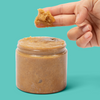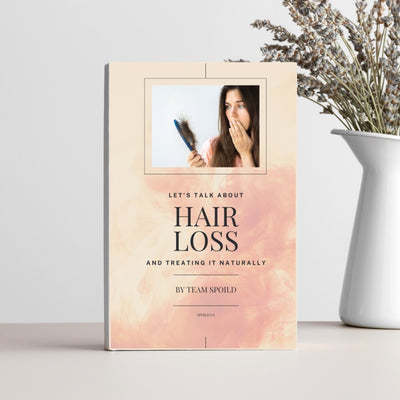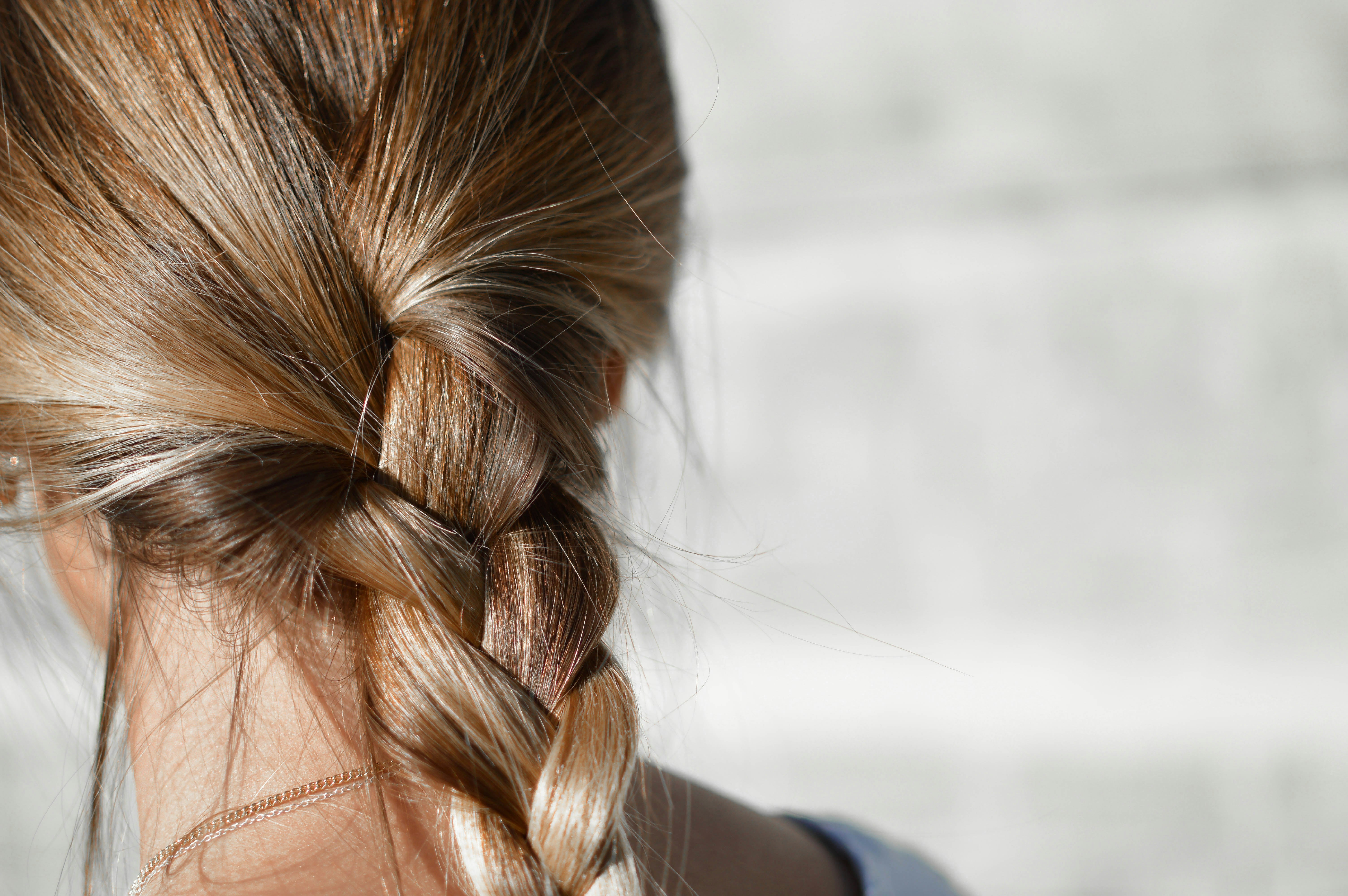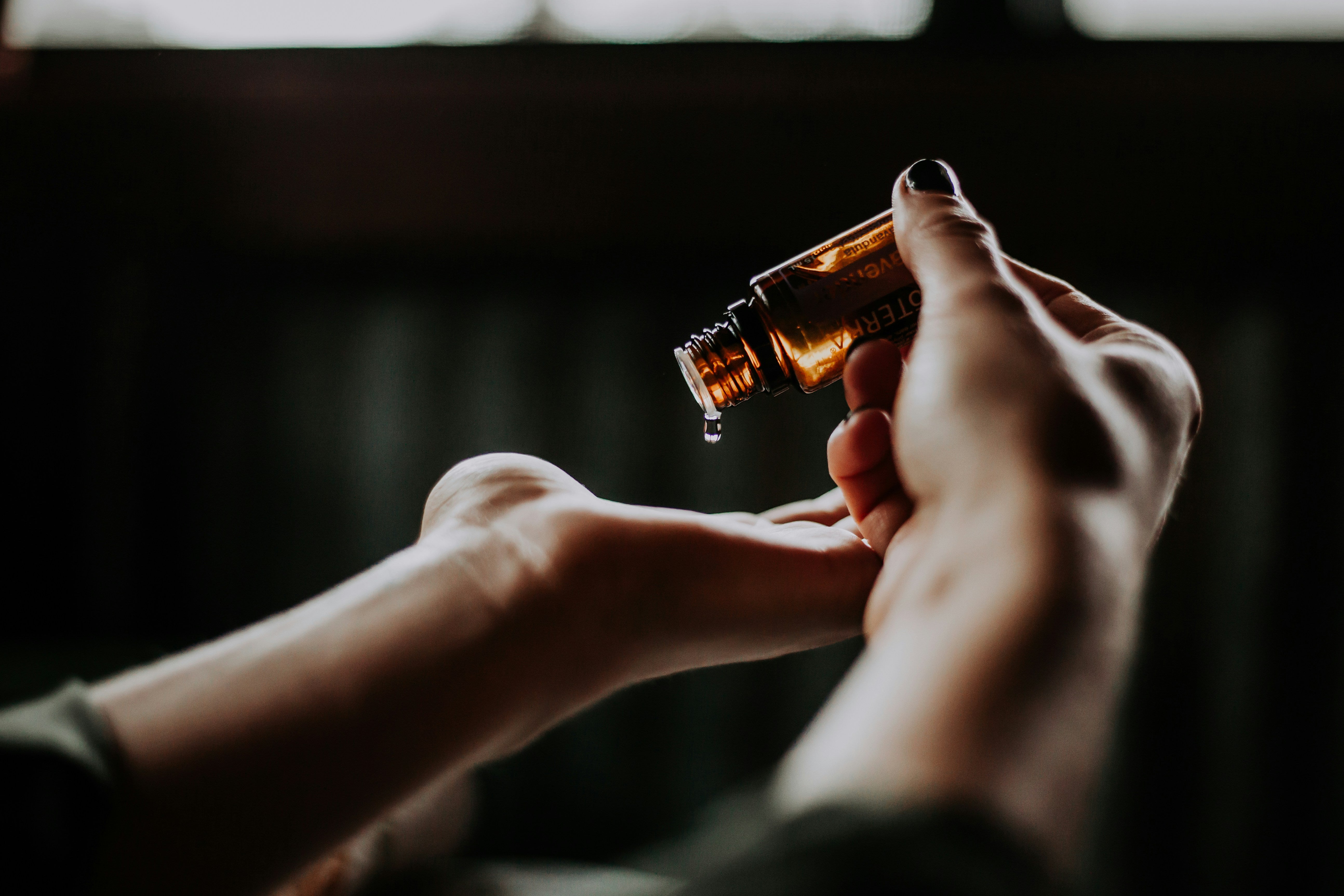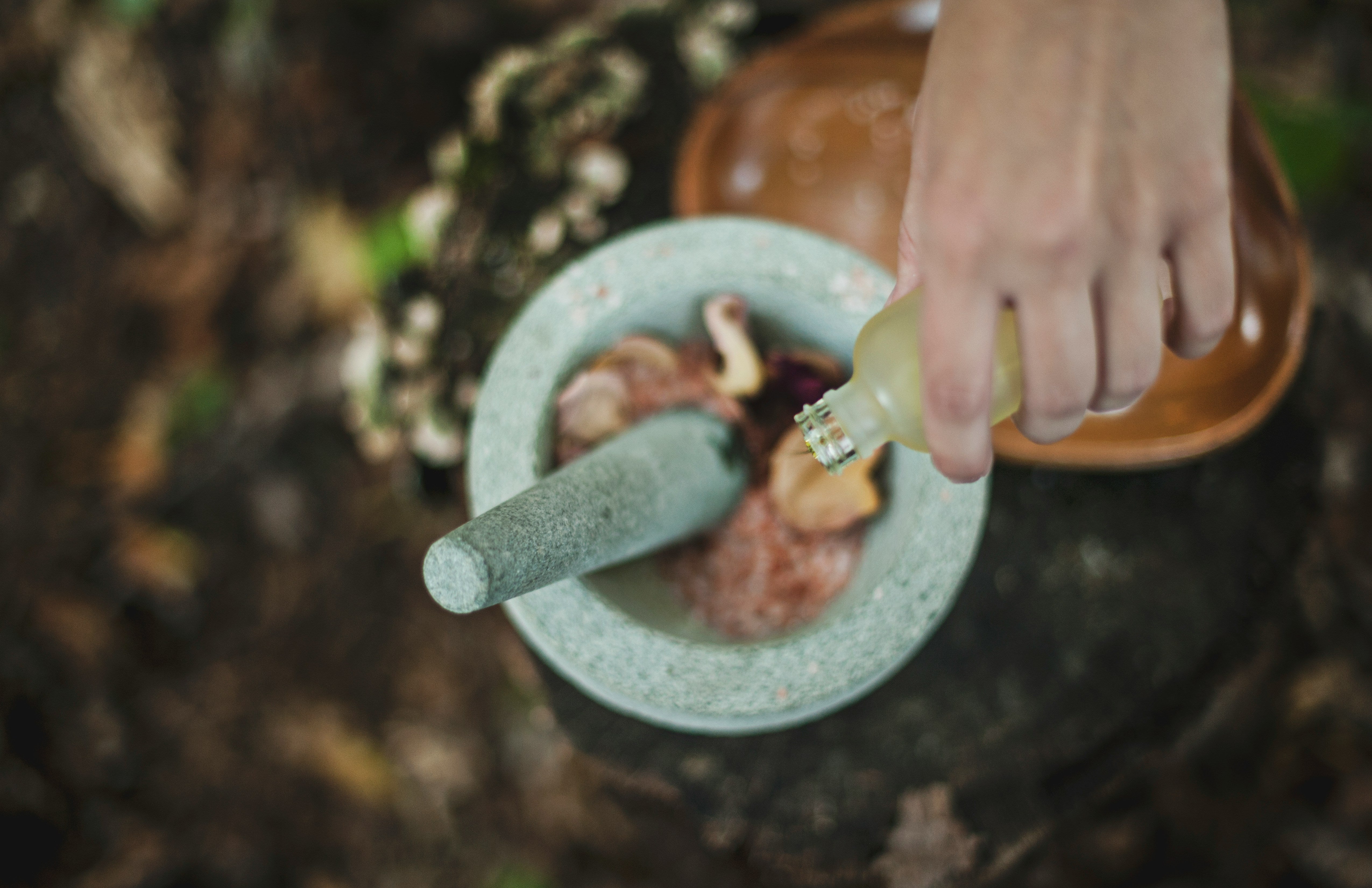Batana Oil vs Castor Oil for Hair Growth: Which is Better?

There’s nothing worse than noticing more and more hair accumulating in the drain, or looking back at old photographs and seeing how much of your hairline has retreated.
Even something as simple as the realization that your hair has lost its luster and is now dry, dull, and lifeless can be enough to send you spiraling. Fortunately, there are so many different solutions at your disposal for restoring healthy hair growth.
In fact, the vast variety of options can quickly become overwhelming. That’s why we’re going to help you narrow down your next haircare addition with this comparison of batana oil vs castor oil for hair growth.
Each has its place in encouraging healthy hair growth, but which is going to yield more impressive results? Castor oil promotes hair growth by stimulating the scalp and locking in moisture, thanks to its rich ricinoleic acid content.
On the other hand, batana oil is also packed with potent fatty acids and vitamin E, offering deep nourishment and hydration that repairs damage and restores shine to dry, brittle hair. It is a more comprehensive approach to hair health than castor oil, which is why it's our suggestion.
Learn more about castor oil vs batana oil below, including whether or not it makes sense to combine the two for the best of both worlds. Or, take the first step towards healthier, more beautiful hair today at Spoild, where you’ll discover the best raw batana oil online!
Overview of Batana and Castor Oil for Hair Growth
We’ll compare and contrast batana oil vs castor oil for hair loss in just a few moments, but we want to explain what makes each a worthy consideration in your hair care routine first.
What is Batana Oil?
So, where does batana oil come from? This nutrient-rich oil is sourced from the nuts of the Elaeis oleifera palm tree, which is predominantly found in the rainforests of Central and South America.
The indigenous Miskito people have used batana oil as a beauty staple for centuries due to its ability to rejuvenate and nourish hair.
But what makes it so powerful? All its benefits can be traced back to its impressive blend of essential fatty acids, such as oleic and linoleic acids, as well as vitamin E.
These nutrients penetrate deep into the scalp and hair follicles to promote moisture retention, repair damaged strands, and improve hair elasticity. This makes batana oil excellent for those struggling with dry, brittle, or damaged hair, as it restores a natural shine and softness.
Its anti-inflammatory properties also help soothe the scalp, addressing conditions like dandruff or irritation, which can hinder hair growth or simply be uncomfortable to live with.
Because it nourishes the hair from the root to the tip, it stimulates healthier hair growth while strengthening existing strands, reducing breakage, and preventing split ends. This makes it a comprehensive solution for overall hair health.
While you’re here to compare batana oil vs castor oil for hair growth, this potent oil also works wonders on skin health, nourishing and repairing damage such as acne scars, hyperpigmentation, and more.
All things considered, using batana oil for hair growth is one of the best ways to bring out the full potential of your hair. But, how does it stack up to castor oil?
What is Castor Oil?
On the other end of the castor oil vs batana oil debate, this oil is extracted from the seeds of the castor plant (Ricinus communis) and is also known for its ability to promote hair growth.
It’s highly concentrated in ricinoleic acid, a unique fatty acid that can increase blood circulation to the scalp. This in turn stimulates hair follicles and encourages growth. This property alone makes castor oil particularly popular for those experiencing hair thinning or hair loss.
But, it also has a thick, viscous texture that coats the hair strands and locks in moisture to create a protective layer around the hair, reducing breakage and split ends.
Meanwhile, its emollient properties also help keep the scalp hydrated, which can prevent dryness and flakiness, both of which can disrupt healthy hair growth.
Castor oil’s anti-inflammatory and antimicrobial properties make it a great choice for maintaining scalp health as well, reducing dandruff and treating minor scalp irritations.
But while it’s highly effective at strengthening the hair shaft and improving thickness, its sticky consistency can sometimes make it challenging to use, sometimes causing build-up.
That being said, should you just stick with batana oil - or is there any reason to consider using castor oil instead? Let’s put the two side-by-side and see where each has an edge below.
Batana Oil vs Castor Oil for Hair Growth: Which is Better?
Just as in our comparison of batana oil vs rosemary oil, we want to preface this comparison of batana oil vs castor oil for hair growth by saying that each has its pros and cons.
But when you really look closely at these two options, we feel that batana oil is the clear choice. Here’s why…
Hair Growth Stimulation
Be clear, both of these oils can curb hair loss and even stimulate new hair growth. In fact, using batana oil for alopecia is becoming increasingly common as a natural approach to fighting hair loss.
This goes back to its rich concentration of oleic and linoleic acids, which help nourish hair follicles and promote healthy hair growth. It also improves blood circulation to the scalp, creating an optimal environment for new hair growth, while hydrating the scalp and hair follicles.
Castor oil also stimulates blood flow to the salp and hair follicles through its ricinoleic acid content, encouraging faster and thicker hair growth naturally. This is why it’s commonly used for thinning hair or hair loss.
It’s tough to say if one is necessarily better than the other as there aren’t any studies closely comparing the two - all we have to go off of here is anecdotal evidence.
We can say with a high level of certainty that most people will see improvements by incorporating batana oil into their hair growth regimen after selling to more than 40,000 customers. That being said, many have achieved remarkable results from castor oil too.
Moisturizing Properties
This is where you’ll start to notice a more dramatic edge for batana oil over castor oil - hydration. Both seek to restore moisture and leave the scalp and hair follicles hydrated but in different ways.
Batana oil has a thick, creamy consistency that does wonders to penetrate the hair shaft and lock in hydration, leaving hair soft, shiny, and more manageable. Its moisturizing properties have helped countless individuals dealing with dry or damaged hair that needs intensive care.
Castor oil also creates a protective barrier that seals in moisture, making it beneficial for combating dryness. However, its thicker, stickier texture can sometimes feel heavy on the hair, especially if over-applied.
While it moisturizes well, it may not provide the same deep hydration as batana oil. It’s more notorious for contributing to scalp-buildup and leaving your hair feeling greasy. For this reason, batana oil is preferred from a moisturizing perspective.
Strengthening and Repairing Hair
Damaged hair is never going to reach its full potential, which is why any healthy haircare routine should focus on repairing and restoring hair from the root up.
Batana oil penetrates deeply to nourish the hair shaft, preventing breakage and split ends while restoring elasticity. Its ability to repair damage makes it a great choice for those looking to restore health and strength to weak or brittle hair.
Castor oil works its magic by coating the hair in a protective layer that reduces breakage and helps hair grow thicker. While it strengthens hair at the root, its ability to repair existing damage is not quite on par with batana oil’s.
Those suffering with damage, especially caused by heat, chemicals, or environmental stress, will find batana oil is far more beneficial.
Benefits for Scalp Health
A healthy scalp is the foundation of healthy hair growth, which is why it’s worth assessing castor oil vs batana oil through this lens as well.
Batana oil has anti-inflammatory properties that soothe and nourish the scalp, reducing irritation, dryness, and dandruff. You can feel it working to clear up agitation as soon as it’s applied.
On the other hand, castor oil’s antimicrobial and anti-inflammatory properties make it a good option for improving scalp health. It can help treat dandruff, reduce scalp inflammation, and clear minor infections that might hinder hair growth. Just be aware that it can sometimes clog pores.
So, both castor and batana oil can be a great way to enhance your scalp health - you can’t go wrong either way here.
Side Effects
It’s important to not only compare the benefits of batana oil vs castor oil for hair growth, but also, any potential downside.
Fortunately, there aren’t really any batana oil side effects to be worried about. It’s generally safe for all hair types, though its thick consistency might feel heavy if overused. Those with sensitive skin may experience minor irritation if the oil is overused as well.
Conversely, castor oil is more conducive to build-up than batana oil. The stong stimulating effects that make it so powerful can actually cause irritation or redness in some people, too.
This is to say that both oils can be well tolerated and safe, but should be used with caution to avoid irritation and build-up. If you have particularly sensitive skin, you may find batana oil to be more gentle and forgiving.
Ease of Use
In looking at the consistency of castor oil vs batana oil you’ll notice quite a difference.
Castor oil is more of a traditional oil in the sense that it’s liquified, although it is relatively thick compared to other oils. This stickier consistency can be difficult to rinse out and may leave a greasy residue if over-applied. It’s also harder to spread across the scalp evenly.
Batana oil is also thick in consistency but is more creamy than viscous. This means you can add a small dollop to your fingertip, rub it between your hands, and easily apply it to the scalp. It’s texture is a bit easier to work with than that of castor oil.
Compatibility with Other Hair Care Products
If you already have other components in your hair care routine, it’s important to ensure anything you add to the regimen is compatible. Thankfully, both castor oil and batana oil can integrate with other products without any adverse effects.
In fact, combining each of these with other oils can lead to powerful synergy that brings out the full potential of your hair. That being said, does it actually make more sense to combine castor oil and batana oil, or should you choose one or the other?
Should You Try Using Batana Oil and Castor Oil for Hair Growth?
Why choose just one oil when you could harness the power of both? Combining castor and batana oil can be a powerful way to enhance your hair care routine.
While they share quite a few similarities, there are also some differences - meaning using both oils will fill in gaps and lead to a more comprehensive approach to hair care.
Batana oil provides deep conditioning and repairs damaged hair, while castor oil does a better job of boosting growth and strengthening the roots.
To get the most out of both oils, you can alternate between them throughout the week or blend them together in a 2:1 ratio (batana oil to castor oil) to create a custom treatment that promotes both hydration and growth.
We have a guide on how to use batana oil for hair growth if you want to learn more - but it’s fairly simple. You can also learn about how long it taked for batana oil to work, what batana oil smells like, how to make batana oil, and more in our blog.
Otherwise, as we wrap up this comparison of batana oil vs castor oil for hair growth, there’s really just one thing left to do - unlock the full potential of your hair with the purest batana oil online at Spoild.
Our product comes straight from the rainforests of Honduras and is always sourced in an ethical, sustainable manner. It’s free from any additives, so you can rest assured you’re getting the potent haircare remedy you need.
Order yours today and see firsthand what makes batana oil one of the best ways to enhance your hair health and speed up the growth process. We’re confident you’ll be back for more.
Wrapping Up Our Castor Oil vs Batana Oil Comparison
In comparing batana oil vs castor oil for hair loss and overall hair health it’s clear that each has its place. Castor oil can stimulate new growth and thicken thinning hair, while batana oil provides deeper hydration, repair, and long-lasting nourishment.
Both can improve the state of your hair, but batana oil is widely considered to be more versatile and even more effective than castor oil. If you’re looking to choose one or the other, it’s our suggestion.
Plus, the pure, potent batana oil you need to bring out the best of your hair or skin is just a few clicks away at Spoild. So, unlock the potential of one of nature’s best kept secrets today!
